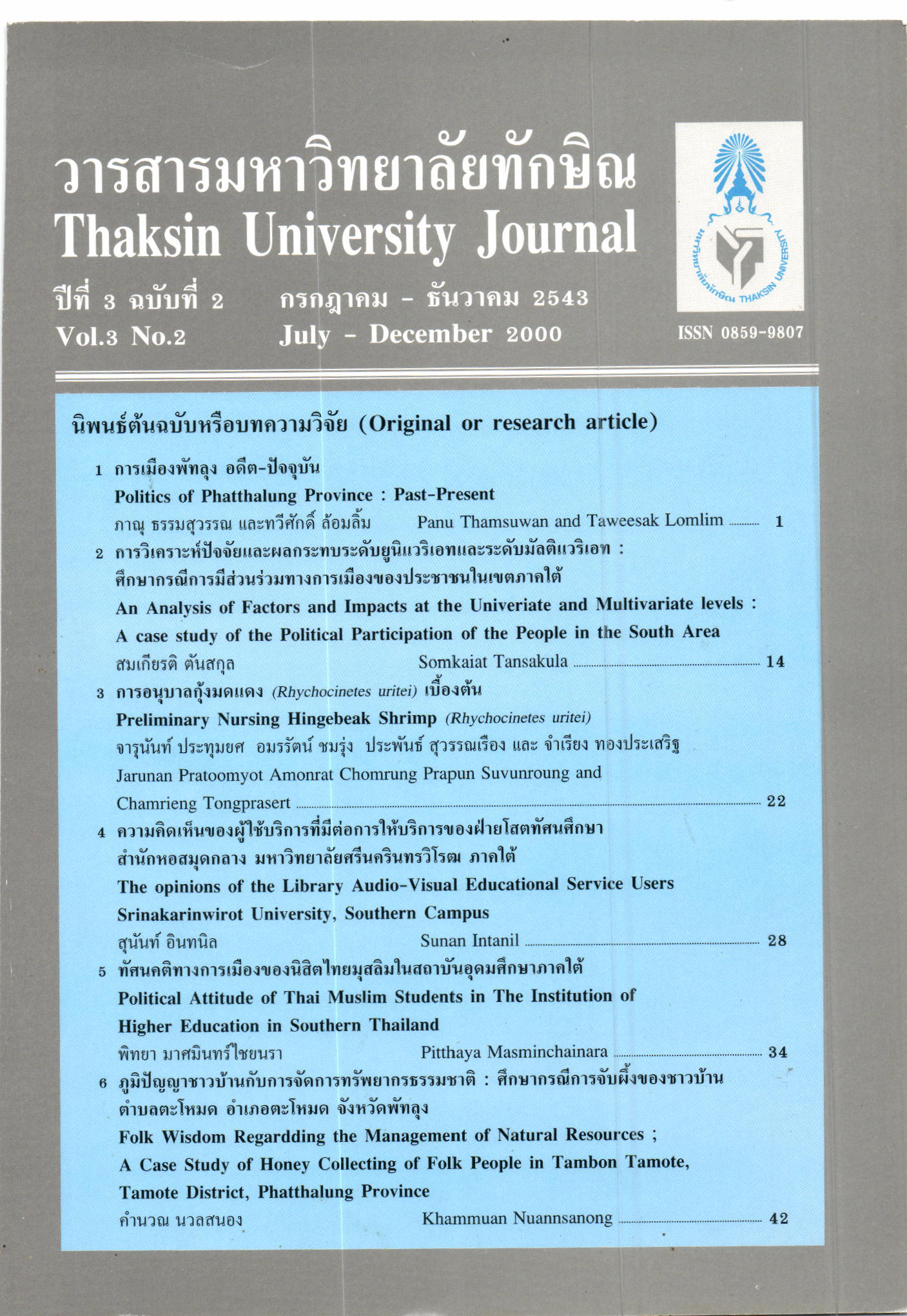ทัศนคติทางการเมืองของนิสิตไทยมุสลิมในสถาบันอุดมศึกษาภาคใต้
Main Article Content
Abstract
This research was aimed at studying political attitudes of Thai Muslim students cufiently enrolled in university level educational institutions in the south of Thailand. The results of the study revealed the following : t. Their level of knowledge and understanding of Thai politics was average. 2. There were conelations between students' background, i.e. their educational institution' and this interests in politics. Student aftending Prince of Songkhla Univenity at Pattani Campus showed a higher level of knowledge and understanding of politics than those attending Rajabhat Institutes and Thaksin University. Similarly, students who were interested in subject conceming constitutional amendments showed a higher level of knowledge and understanding of politics than those who were not interested in this topic. There were no correlations between the students' sex, field of study, places of residencg, political course enrollment and this level of knowledge and understanding of politics. 3. There were correlations between students' background, i.e. their educational institutions, political course enrollment and their opinions on politics. Students attending Pdnce of Songkla Univcrsity at Pattani Campus showed a better understanding of politics than those attending Rajabpat Iusitutes and Thaksin University. Similarly, students who used to take courses in politics showcd a better understanding of politics than than those who had never enrolled in these courscs. There were no correlations between students' sex, field of study of study, place of residence, inl.erests in constitutional amendments and their opinions on politics. l. RegaLrding their opinions on prcsent and future politics of Thailand, most srudents agreed that the new constitution would improve rhe standard of Thai politics. They agrecd with idea of making voting as a legal duty of Thai citizens. Their preferred voting pattem lbr a single cinstituency and a pany list was similar. They expected that interests in voting procedures and dissemination of using procedures to peoplc would play a supponing role in the improvement of Thai politics. They also expressed that good members o1'parliament should be honest and that the government should solve the economic problerns and should uplilt the living conditions of Thai Muslims.
Article Details
Section
Research Articles


